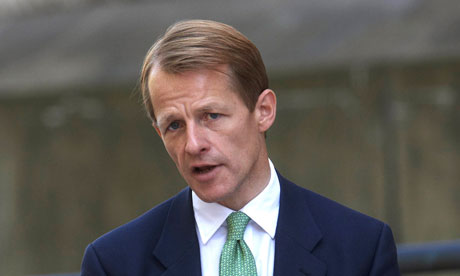Owen Jones continues to use his Guardian column to peddle lies and misrepresentations about conservative economic policy, in a Herculean effort to save British leftists from having to come to terms with their failed economic policy dogma.
In praise of John McDonnell’s unabashedly left-wing conference speech, Jones whines:
It was a speech not lacking in concrete proposals: a tax transparency and enforcement programme; a £250bn investment programme in infrastructure and clean energy; a national investment bank, backed up by regional investment banks, to support small businesses; legislation to stop the emergence of Philip Greens by reforming companies – preventing them from “taking on excessive debt to pay out dividends” and ensuring company takeovers protect workers and pensions; the promotion of cooperative and worker ownership; protection for self-employed people; plans for a universal basic income and the reintroduction of collective bargaining to stop the levelling down of wages.
The critique writes itself: Labour lost the last election because it was not trusted with the nation’s finances. How on earth do these speeches address those concerns? There are two points to make. Firstly, Labour’s failure to defend Blair and Brown’s spending record – with the Tories revising history to claim that the investment they backed was at the root of Britain’s economic woes – is critical to understanding the party’s election loss. That’s why the Tories’ line – “why hand the keys back to the driver who crashed the car?” – was so devastatingly effectively.
My emphasis in bold.
Sorry, but this is complete balderdash from Owen Jones. The conservative / small government criticism of New Labour economic policy is not that runaway government spending *caused* the economic crisis – that is clearly false, when we know that the crisis was precipitated by a bad credit-fuelled housing bubble which undermined a grasping and improperly regulated banking sector. The conservative position is that by spending money like it was going out of fashion and running budget deficits even in the good years, there was absolutely no “rainy day” fund or financial buffer available when the bottom fell out of the economy and tax revenues dried up.
That is the real reason for today’s so-called “austerity” (meaning slightly reduced increases in government spending compared to earlier baselines). Jones later goes on to charge the Tories with “the failure to eliminate the deficit as promised, a rising national debt” – well, what would his preferred spendthrift policies have done? If Owen Jones is seriously suggesting that the forsaken economic recovery resulting from continued or increased government spending from 2010-15 was so great that it would have paid for itself, eliminated the deficit and taken a chunk out of the national debt then he is treating his readers like they are stupid. And he is holding the Tories to a standard of economic miracle-working which he would never expect of his own beloved Labour Party.
The reason that nobody trust the Labour Party on the economy – the reason that Labour MPs are laughed out of town whenever they even make a claim to economic competence – is that New Labour’s remorseless cranking up of the size of the state, together with their endless expansion of government spending and determination to hook more and more people on government welfare, meant that Britain was uniquely badly positioned among advanced nations to weather the global financial crisis.
The charge is not that idiotic PPI contract-delivered hospitals and shiny new school buildings in Britain actively caused a global credit crunch and recession. The charge is that this ignorant spendthriftery weakened Britain’s financial position, meant that the slightest cuts in government spending would immediately impact public sector workers or those encouraged to be dependent on various benefits, and made our subsequent economic pain that much more brutal – the cost of which can be counted today in lost and stunted lives. This is what Labour “compassion” hath wrought.
So no, the Tories do not suggest that electing a Labour government would be akin to “handing the keys back to the driver who crashed the car.” For all their faults, Labour did not deliberately crash the vehicle. But they did set out on treacherously icy roads having previously cut the brake cables, and that is just as bad, however desperately Owen Jones tries to spin it.

–
Support Semi-Partisan Politics with a one-time or recurring donation:
–
Agree with this article? Violently disagree? Scroll down to leave a comment.
Follow Semi-Partisan Politics on Twitter, Facebook and Medium.






